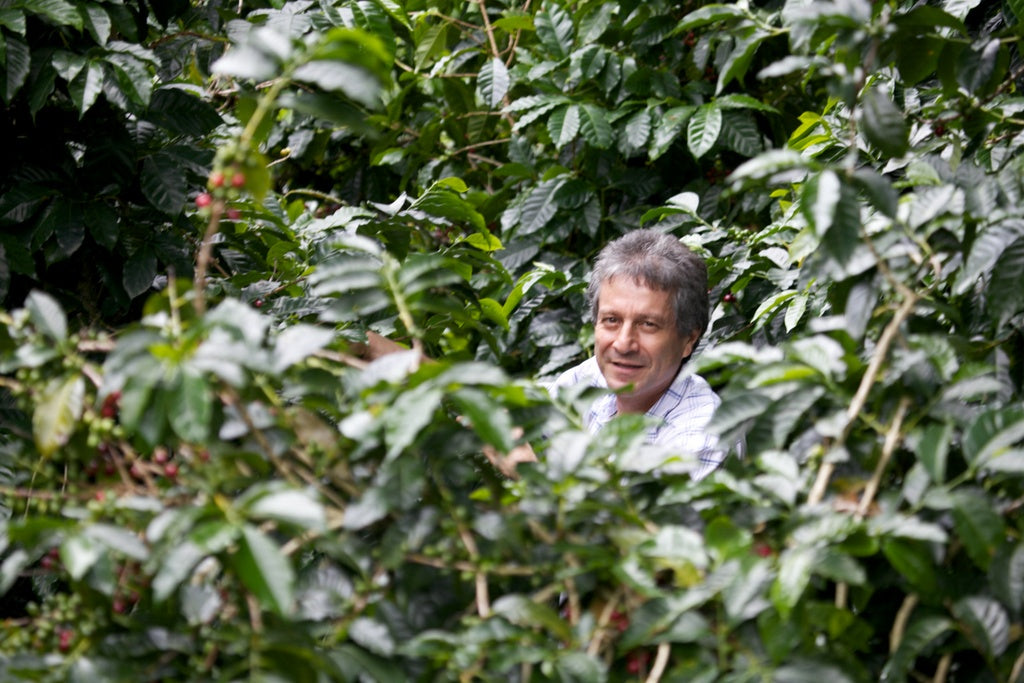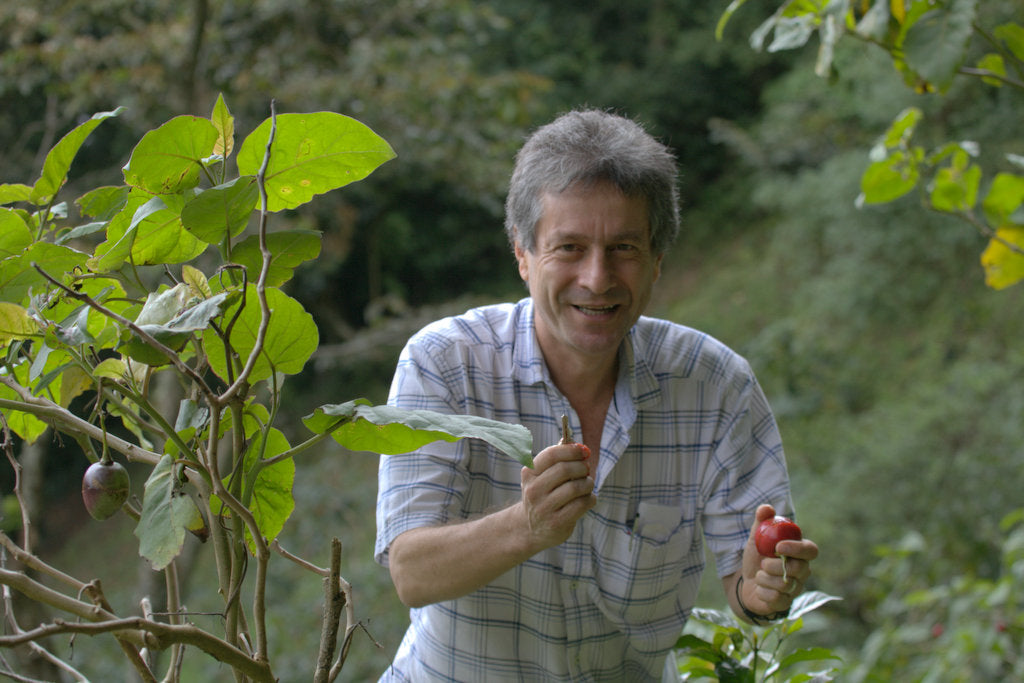
Trip Report: Elida Estate, Boquete, Panama
By Jeff Taylor, co-founder of PT's.
I’ve been traveling to Panama for nearly a decade now. It’s one of my favorite trips each year. The producers here are very educated, up to date on the latest farming and processing techniques, agronomy and the science of coffee. So I took it as one of my many goals of the trip to learn as much as possible from these producers during the short visit.
Wilford Lamastus of Elida Estate was one of the very first producers I ever met on my first trip to Panama years ago. We’ve been friends and buyers of his coffee for a long time. PT’s was one of the first couple of buyers of his naturally processed coffees. I have never visited his farm in December, early in the harvest, to see the cherry selection and processing at work.
Wilford is the “next generation” of the Lamastus family to care for this farm. Elida Estate has been in the Lamastus family since its founding in 1918. It was named for the wife of the founder, Robert Lamastus.

Wilford picked me up early and we started our day with a cupping. Not a surprise, Wilford likes to cup coffee more than anyone I’ve ever met. He is meticulous and has developed an outstanding palate, especially for natural coffees. I would consider processing of naturals to be one of his specialties.
We unlocked the doors to the Specialty Coffee Association of Panama (SCAP) offices in Boquete early Monday morning and prepared the coffees for tasting. Obviously it was very early in the harvest, so we’re both aware the coffees will improve with rest, but we were eager to taste what was coming off of the drying patios so far. We included on the table a couple of coffees from last year’s harvest as a comparison and also a washed coffee from last year so that we had something on the table as a neutralizer for our palates. Tasting naturals can be a real challenge as the over ripe fruit flavor can really build up on your palate when tasting multiple cups and this can cause mistakes with other coffees if you aren’t careful to cleanse your palate of the off flavors.
I will reserve judgment on the coffees that were on the table as it was really early in the harvest and most of the coffees were from low grown parts of his farm.
After cupping, we headed to his “Vivero” or Nursery in English. Wilford is cultivating a nursery full of Geisha (or Gesha) trees that will fill his farm in the coming years. Panama has become famous in recent years for the Geisha variety. The Geisha variety brings a much higher price and production of this coffee is surprisingly good and resistant to diseases common in this area.

Wilford tells me about his nursery and the Catuai and Geisha trees he’s preparing for transplant higher on the farm. He’s planted Geisha as high as 2,000 meters, but the growth rate for these trees has been extremely slow at that altitude and he’s not sure of their value at this point. He’s still hopeful though. The higher the coffee is grown, the greater the density of the bean and the better the flavor of the coffee.
After a short trip higher up the hill, we made it to his mill where workers were raking the patio and preparing for the arrival of the days harvest. We can see the pickers off in the distance, but they generally don’t deliver the cherry they are picking until around noon. So we drove to the top of his farm to start our inspection of the harvest.
Tree tomatoes were hanging gloriously from the trees at the top of his farm, which is actually located in the Alto Quiel region of Boquete, with a range of altitudes from 1670 to 2000 meters.

As we moved down the farm to elevations at 1800 meters, you could see the cherry ripening to a bright red color on the predominately Catuai trees and the growing number of Geisha trees. Pickers were working hard on the sides of the mountain. Cherry selection, as I witnessed, could use some improving, but that is a concern at virtually each farm we visit throughout the year. Pickers get paid by volume, so unless otherwise instructed, they pick anything in site regardless of ripeness. It takes a lot of training and monetary motivation to teach pickers to pick only the ripest of red cherries. Wilford’s efforts in this area are certainly consistent with many farms we visit.
With the selection of cherry as a small concern, we are working with Wilford to harvest a special lot just for PT’s that is only the ripest of the red cherry that is selected and sorted before drying. This will be a first and should lead to an even more exceptional lot of Elida Natural when it arrives later this summer.
Wilford, capitalizing on the trends in the industry and a growing tourist market in Panama City, recently opened a cafe in the Old Town area of Panama City.
